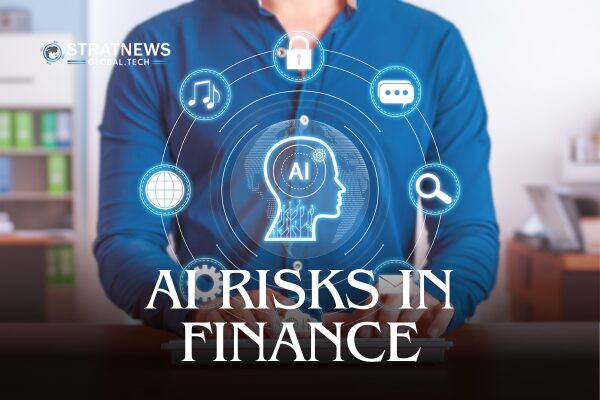Global financial regulators have outlined new plans to closely monitor the growing use of artificial intelligence (AI) in the banking and finance sectors. The move comes amid growing concern that the rapid adoption of AI could pose risks to financial stability if not properly managed.
Watchdogs Warn of Overreliance on Shared AI Models
The Financial Stability Board (FSB), the G20’s financial risk watchdog, warned in a report released on Friday that widespread dependence on similar AI systems and specialised hardware could lead to herd-like behaviour among institutions.
“This heavy reliance can create vulnerabilities if there are few alternatives available,” the FSB said. It cautioned that such concentration could make the financial system more exposed to shocks, particularly if a shared model fails or produces flawed outputs.
The report also noted that while AI could heighten market stress, there is currently “little empirical evidence that AI-driven market correlations affect market outcomes.” However, regulators remain wary of potential systemic risks as financial firms increasingly integrate AI into trading, lending and risk management systems.
Central Banks Urged to Upgrade AI Capabilities
A separate study by the Bank for International Settlements (BIS) echoed the FSB’s concerns, stressing the “urgent need” for central banks, financial regulators and supervisors to enhance their understanding and use of AI.
“There is a need to upgrade their capabilities both as informed observers of the effects of technological advancements and as users of the technology itself,” the BIS said. The organisation highlighted that regulators must develop expertise to oversee the technology effectively while also harnessing its benefits for monitoring and analysis.
Regulation and Global Competition
The United States, China and several other nations are locked in a race to lead in machine-learning and AI development, spurring regulators to keep pace with rapid innovation. Authorities are also examining new risks, including AI-driven cyberattacks and fraud, as financial systems become more automated.
Some jurisdictions have already acted. The European Union’s Digital Operational Resilience Act (DORA), which came into force in January, is one of the first regulatory frameworks aimed at strengthening digital resilience, including oversight of AI use in financial services.
The coordinated push from global watchdogs marks a significant step in ensuring that the expansion of AI in finance enhances productivity without undermining market stability.
with inputs from Reuters
Author

A multi-faceted professional with a diverse range of skills and experiences. He currently works as a Producer, Digital Marketer, and Journalist for several well-known media outlets, namely StratNewsGlobal, BharatShakti, and Interstellar. With a passion for storytelling and a keen eye for detail, Aditya has covered a wide range of topics and events across India, bringing a unique perspective to his work.When he's not busy producing content, Aditya enjoys exploring new places and cuisines, having traveled extensively throughout India. He's also an avid writer and poet, often penning his thoughts and musings in his free time. And when he wants to unwind and relax, Aditya spends time with his two loyal companions, Zorro and Pablo, his beloved dogs.Aditya's dynamic personality and varied interests make him a unique individual, always eager to learn and experience new things.
View all posts


